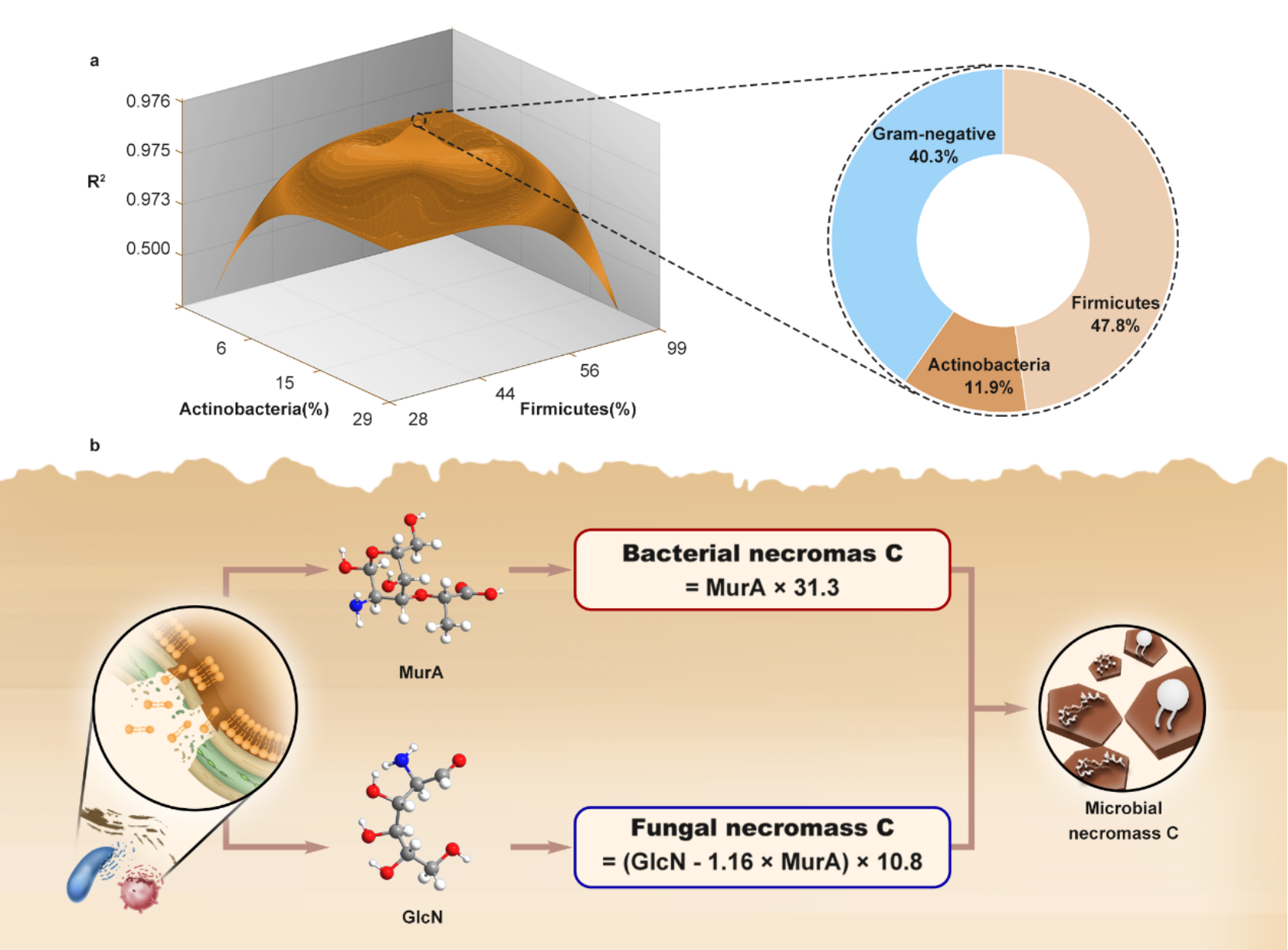
Soil organic carbon is the largest terrestrial carbon pool, and microbial-derived carbon (MDC) is a significant component of the stable soil carbon pool. However, current estimation methods for MDC concentrations are uncertain due to limited sample sizes and overlooked bacterial group composition effects, hindering our understanding of the terrestrial carbon cycle.
Prof. LIANG Yuting' research team from the Institute of Soil Science, Chinese Academy of Sciences (CAS), collaborated with 12 universities and colleges, including the Institute of Applied Ecology, CAS, Nanjing University, ETH Zurich Switzerland et al. They compiled a comprehensive global dataset and employed advanced artificial intelligence techniques to enhance the quantitative understanding of MDC contributions to total soil carbon storage.
Their efforts reduced the relative standard errors in prevailing estimations by an average of 71% and minimized the impact of global variations in bacterial group compositions on MDC estimation. Their findings suggest that MDC contributes approximately 758 Pg, representing about 40% of the global soil carbon stock.
This study was published in PNAS on August 22, 2024.
The scientific significance of this research is in refining MDC estimation formulas to improve precision while maintaining simplicity and practicality. Given the crucial role of the MDC pool in mitigating climate change, enhancing soil productivity, and sustaining ecosystem health, this study has direct implications for modeling efforts and predicting the land-atmosphere carbon balance under current and future climate scenarios.

Determination of formulas for bacterial and fungal derived carbon (Image by LIANG Yuting)
Attachment Download: